Aluminum, copper, and stainless steel are among the most commonly used metals; almost any castable metal may be used including gold, titanium, and brass. Due to the smooth surface of the wax pattern that is used to create a ceramic mold, the resulting parts have a very fine finish that requires little machining. Read More…
Founded in 2011, Lodestar Quality LLC is a knowledge-driven custom manufacturing solutions provider that provides manufacturers of products a full range of services from innovative design and engineering, to sourcing and production using best in class quality control methods in a cost efficient manner. Focus areas include fabrications, castings, machining and forging, plastic products, and...
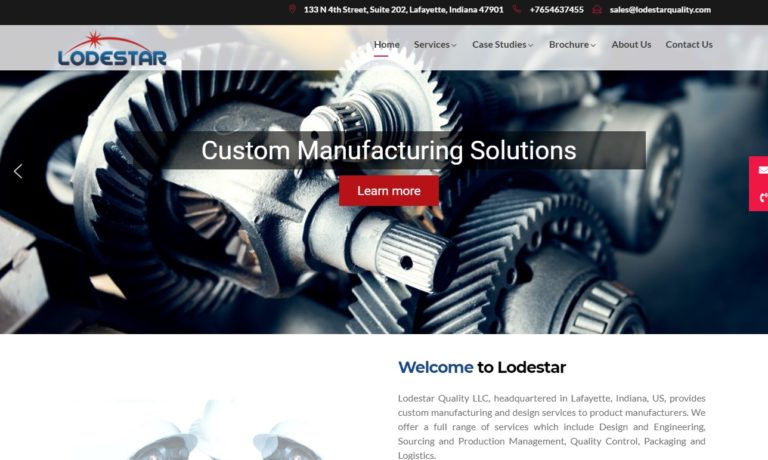
Since 1944 we have been driven to remain a cut above the competition in investment castings and everything we do. We have our own tooling shop filled with state-of-the-art testing machines. We ensure perfect results every time. It is our goal to establish lifelong relationships with our customers that benefit us both. Contact us for more info today!
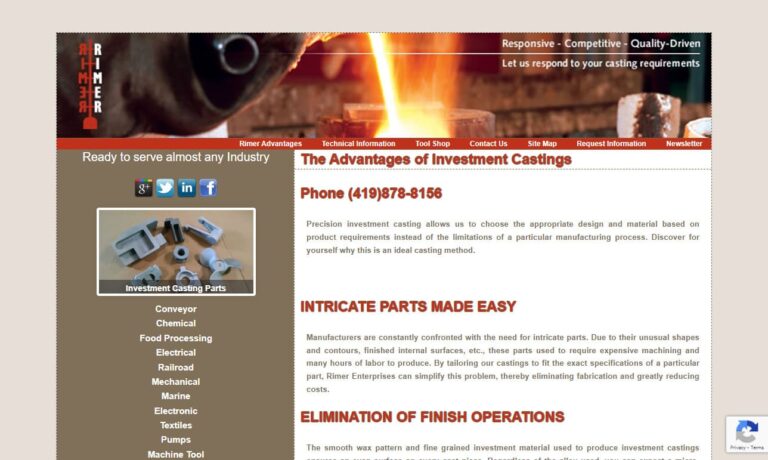
At Associated MetalCast, we specialize in precision investment castings, delivering high-quality metal components with intricate geometries and superior surface finishes. Our expertise spans a range of industries, where we provide cost-effective solutions that meet tight tolerances and complex design requirements. Using advanced casting techniques and top-grade materials, we ensure durability,...

At IPC Foundry Group, Inc., we present ourselves as dedicated specialists in investment castings, producing high-precision components that meet demanding mechanical and dimensional requirements across a wide range of industries. We work with stainless steels, carbon and alloy steels, tool steels, and specialty metals, using the lost-wax process to create complex geometries with fine surface...
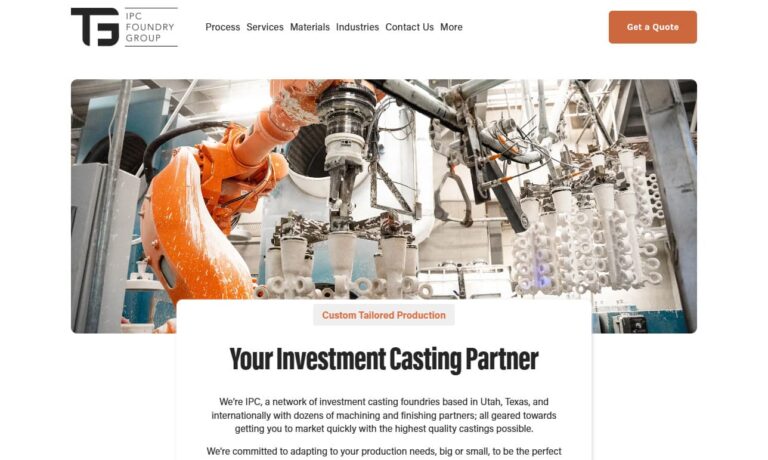
At Kormax, we present ourselves as dedicated specialists in investment castings, producing high-precision metal components that meet demanding mechanical, dimensional, and surface quality requirements. We work with a broad range of alloys—including stainless steels, carbon and alloy steels, aluminum, bronze, and specialized materials—to create castings that deliver strength, consistency, and...
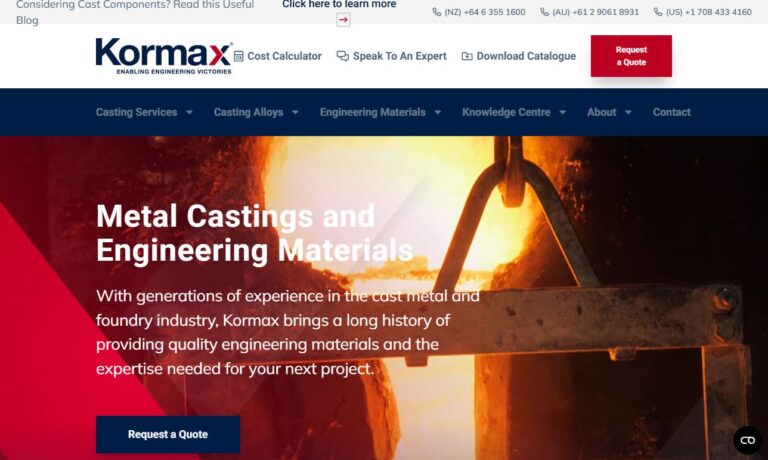
At Designed Precision Castings Inc., we present ourselves as specialists in investment castings dedicated to producing high-precision components that meet demanding mechanical, dimensional, and aesthetic requirements. We work with a wide range of alloys, including stainless steels, carbon and alloy steels, tool steels, aluminum, and specialty materials, giving us the flexibility to support...
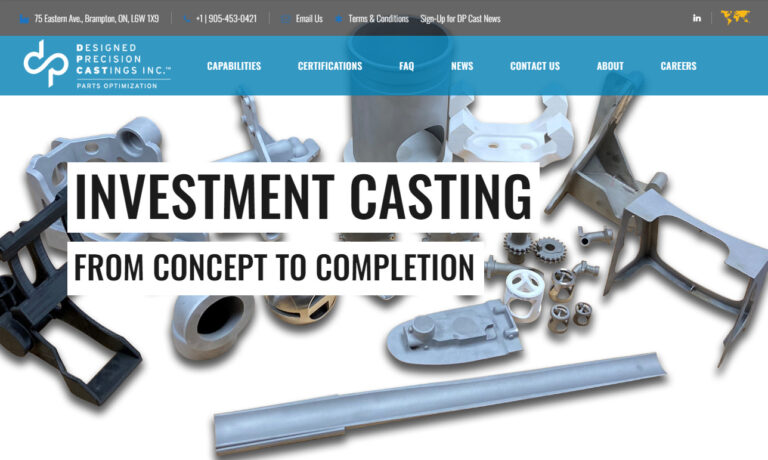
More Wax Casting Companies
Wax casting is effective at producing complex and detailed parts that other manufacturing methods cannot. There are no seams, flashes, or parting lines because the part is made as one whole piece. Because a wax model is created in the exact size and shape as the part, wax casting provides a highly accurate part. Castings can be fractions of an inch thick or weigh hundreds of pounds; most parts are around 15 pounds or less.
Wax casting is a traditional metal part manufacturing process that has been used for jewelry making for hundreds of years. It is finding modern uses in a wide variety of applications including dental and medical tools, engines, couplings, fittings, pipes, propellers, and in aerospace, automotive, dental, medical, electrical, construction, mining, food processing, telecommunication, plumbing, military, sports, and other industries.
Wax casting relies heavily on wax and its properties, though the actual wax is not necessarily pure; it may contain plastic or other substances. The wax can be carved by hand or machine but may also be produced through injection molding where hot wax is poured into a metal mold. Items such as preexisting patterns made from other materials may be covered in wax that is carefully removed when hardened then reattached.
When the wax model is ready, it is attached to a wax sprue using a heated metal tool. Depending on the size and shape of the part, several hundred patterns may be attached to the same sprue resulting in an assembly called a tree which is dipped in ceramic slurry called the investment. It is dipped multiple times in mixtures that are increasingly coarse until the investment shell is thick enough. Another method is to place the tree in a flask and pour investment into the container until the tree is completely covered.
Once the investment has hardened, the tree is inverted and placed in an oven or furnace. It is exposed to high temperatures during the burnout stage when the wax melts and runs out; all residual moisture is baked off. When removed from the oven, a liquid metal at very high temperatures is poured into the hollow shell. The metal cools within minutes and the shell can be removed, exposing the part within.


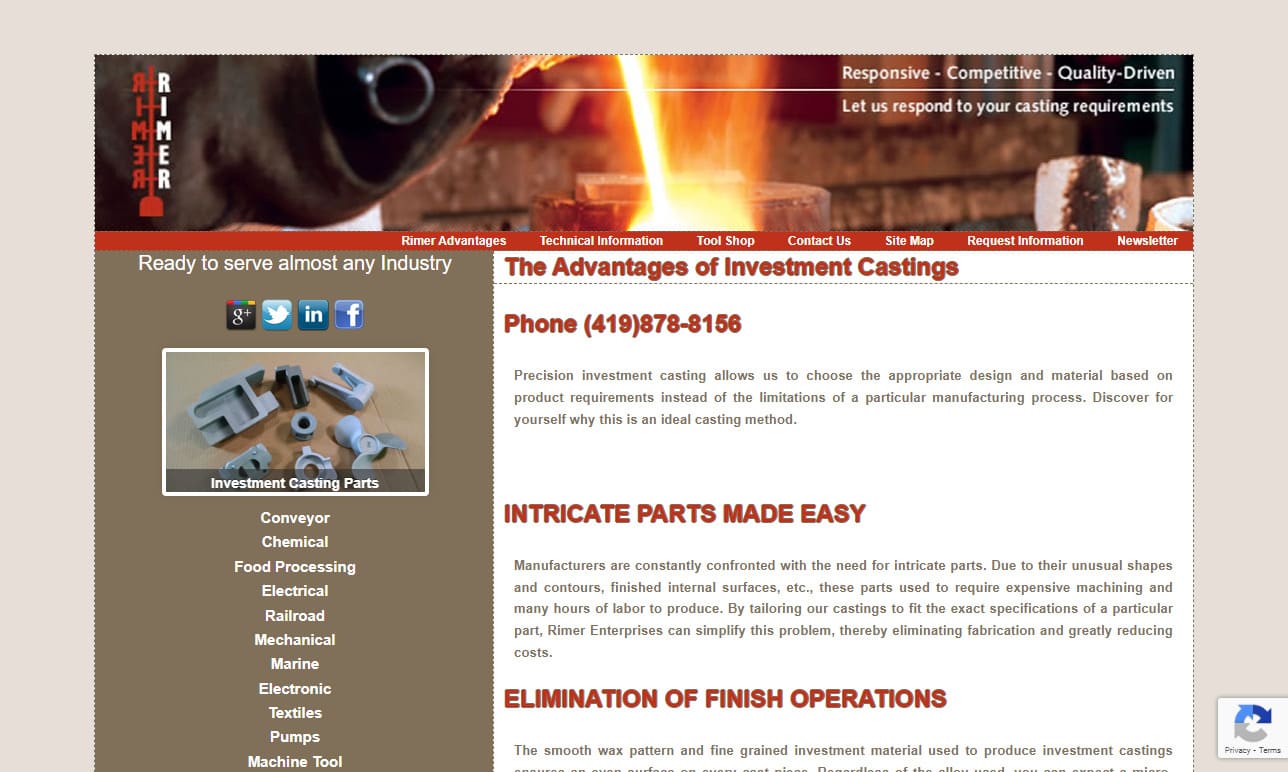

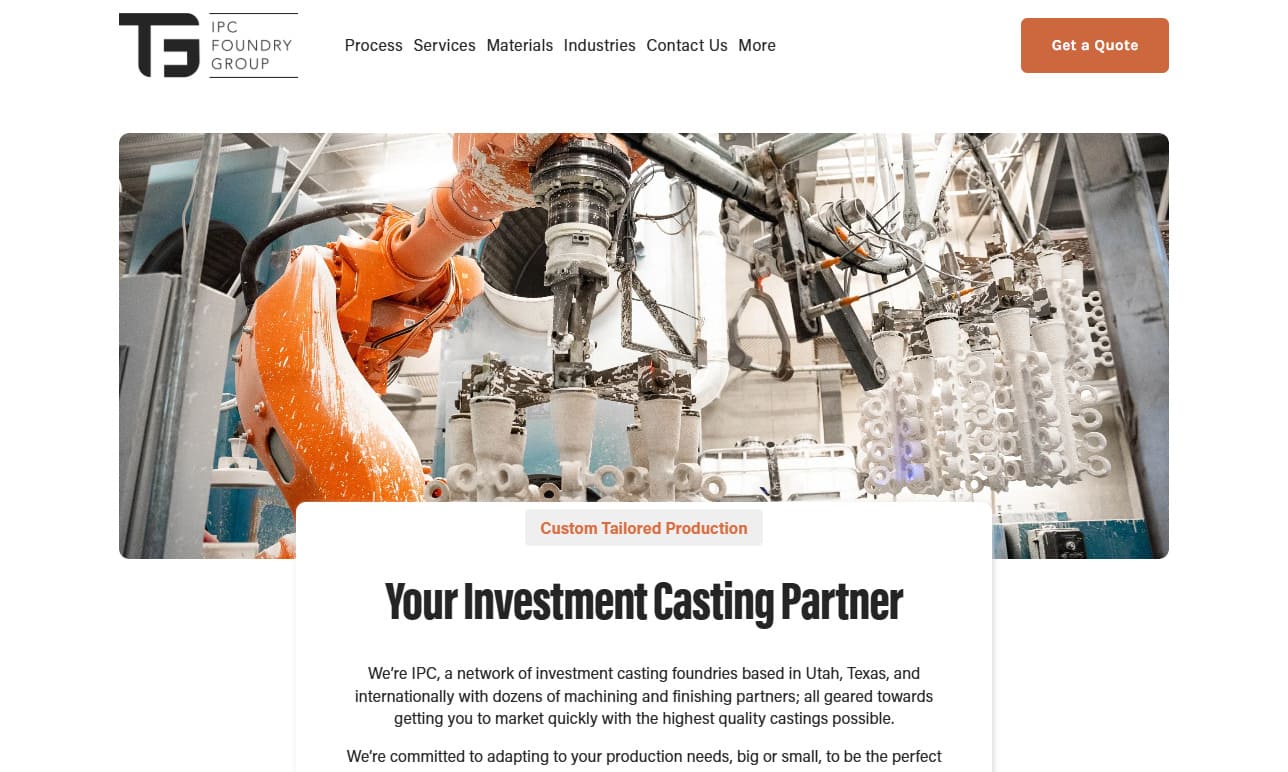
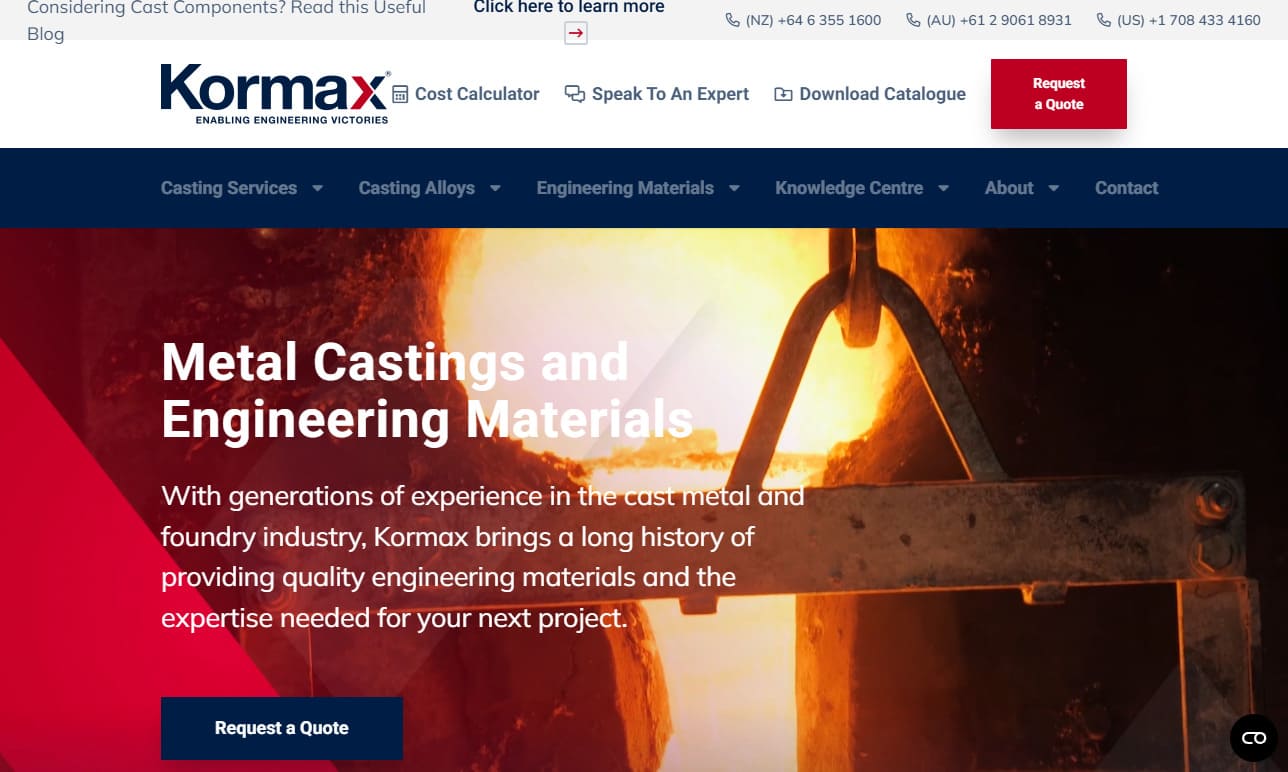

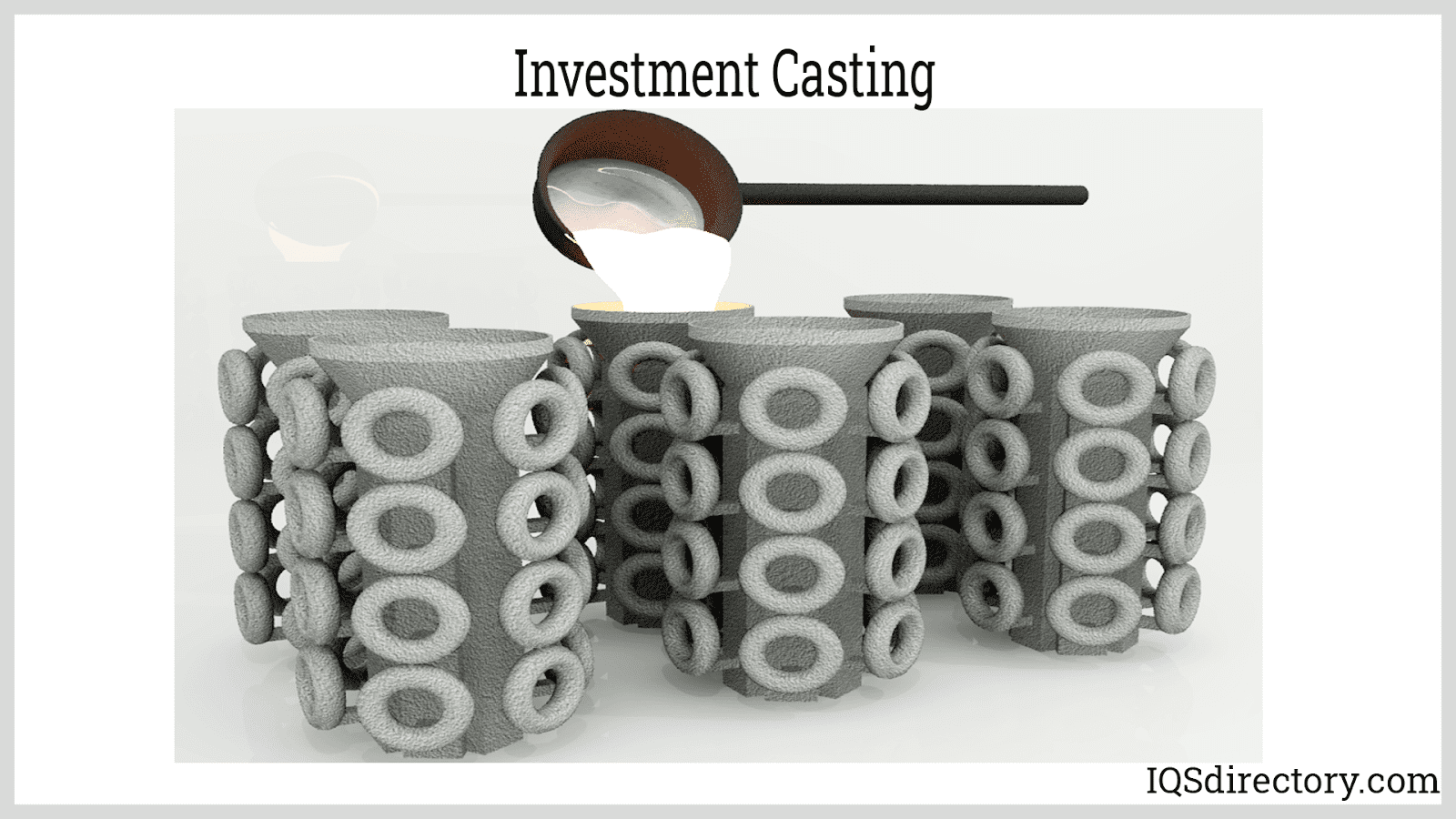
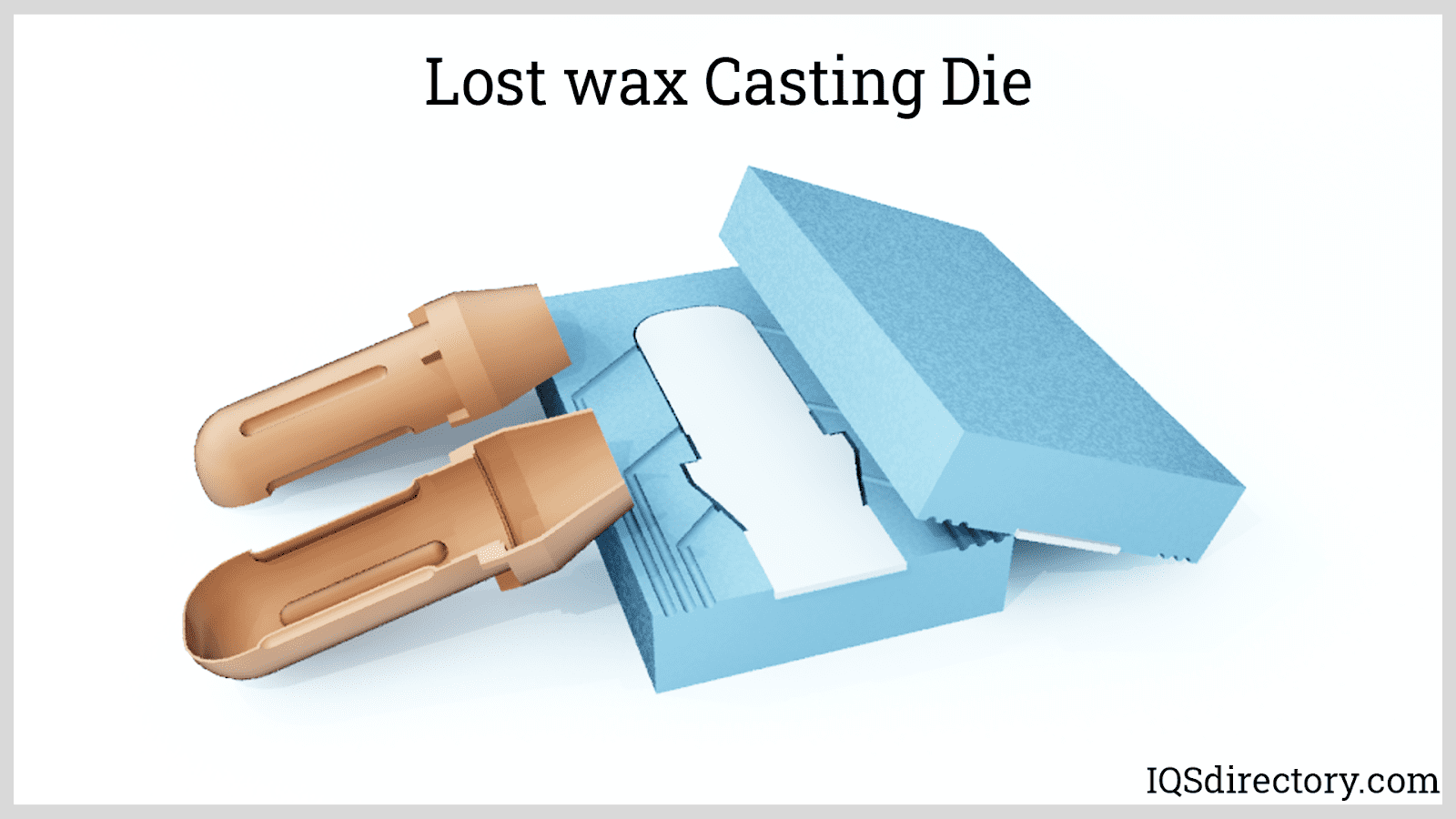
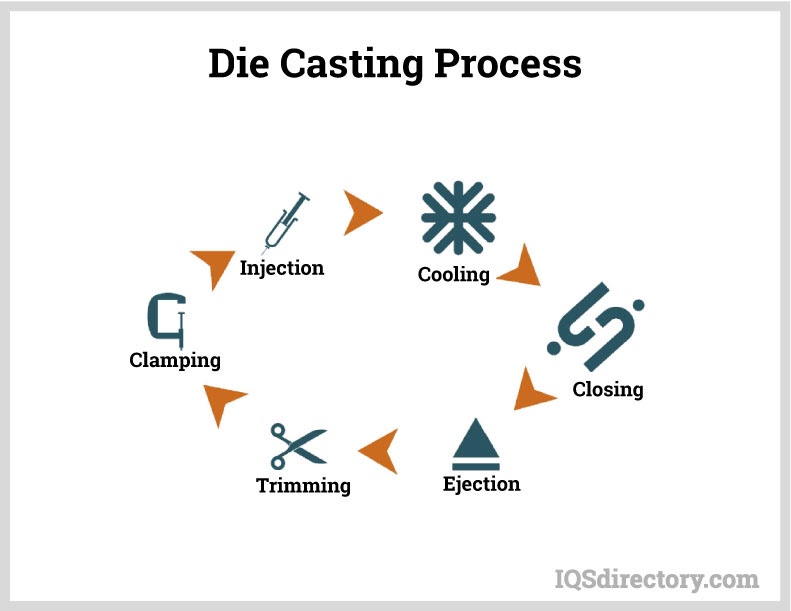

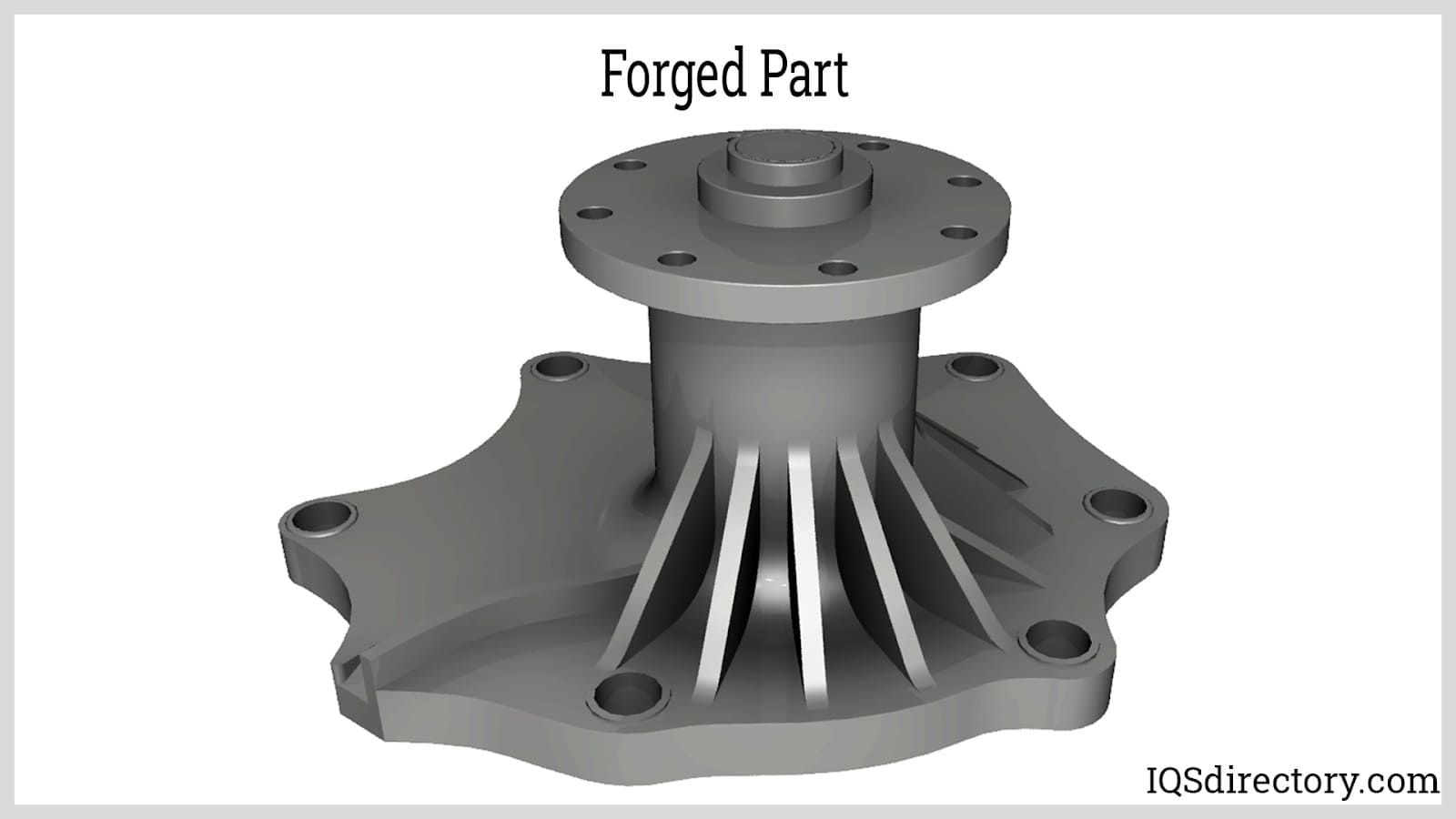
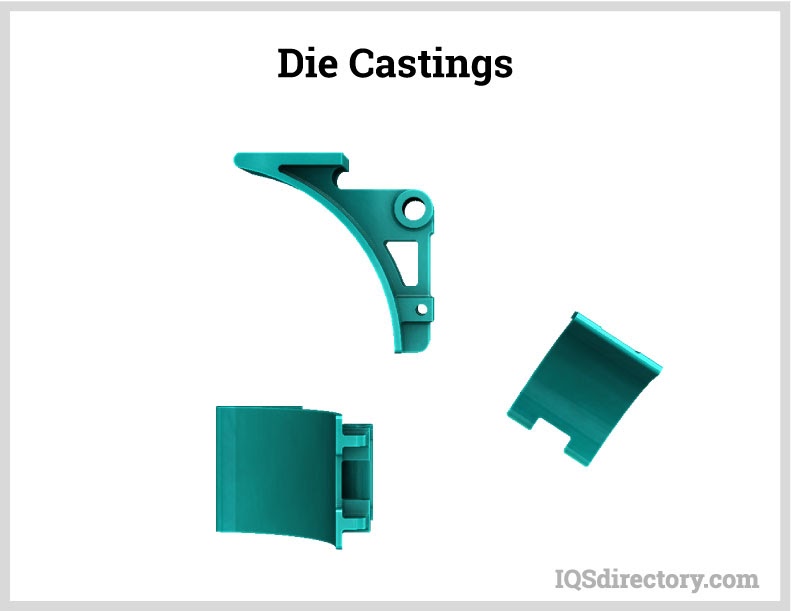
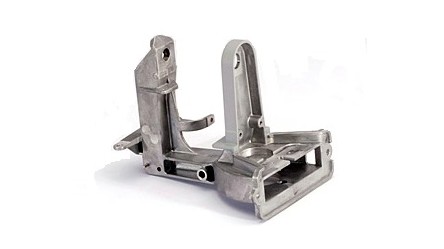 Die Castings
Die Castings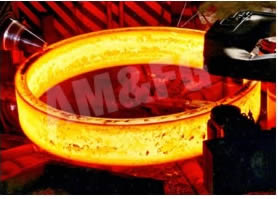 Forgings
Forgings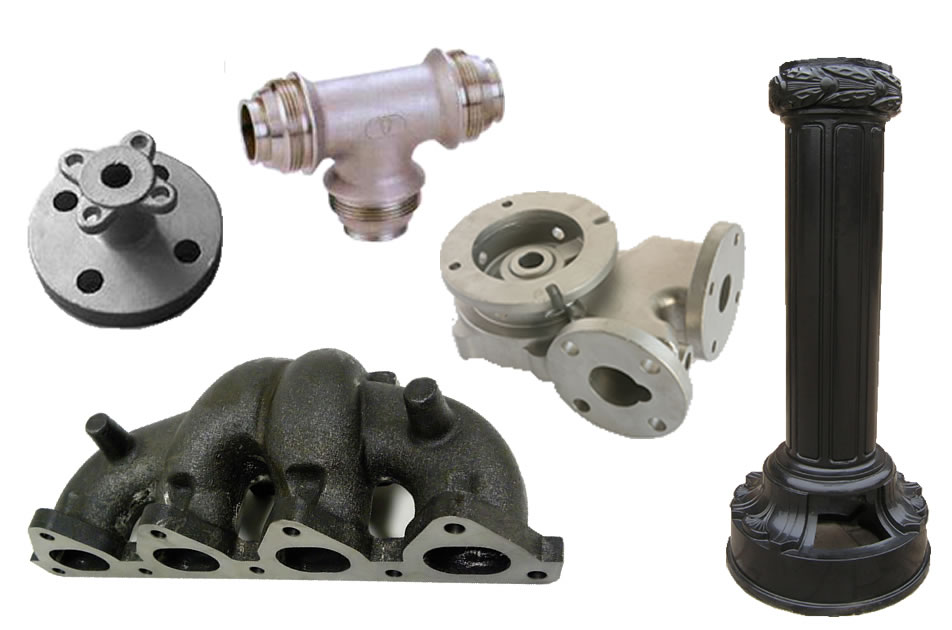 Grey Iron Castings
Grey Iron Castings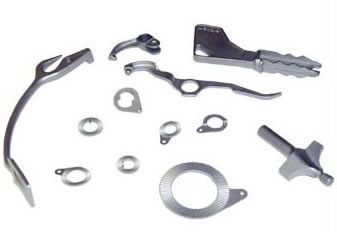 Investment Castings
Investment Castings Castings & Forgings
Castings & Forgings Bulk Material Handling
Bulk Material Handling Electrical & Electronic Components
Electrical & Electronic Components Flow Instrumentation
Flow Instrumentation Hardware
Hardware Material Handling Equipment
Material Handling Equipment Metal Cutting Services
Metal Cutting Services Metal Forming Services
Metal Forming Services Metal Suppliers
Metal Suppliers Motion Control Products
Motion Control Products Plant & Facility Equipment
Plant & Facility Equipment Plant & Facility Supplies
Plant & Facility Supplies Plastic Molding Processes
Plastic Molding Processes Pumps & Valves
Pumps & Valves Recycling Equipment
Recycling Equipment Rubber Products & Services
Rubber Products & Services